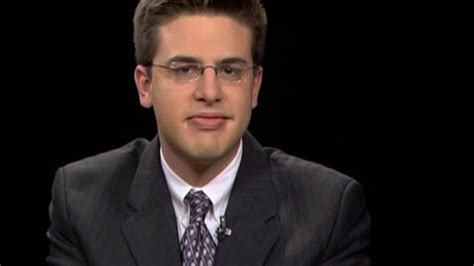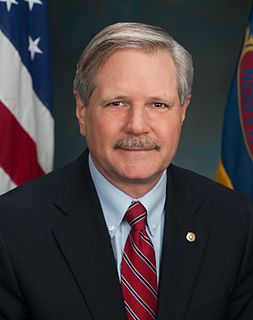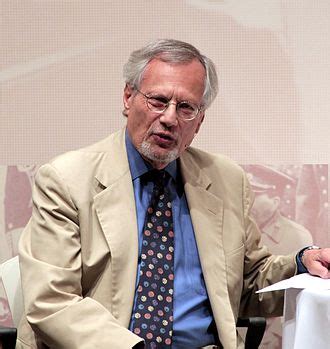A Quote by Jacob Weisberg
In trying to explain our political paralysis, analysts cite President Obama's tactical missteps, the obstinacy of congressional Republicans, rising partisanship in Washington, and the Senate filibuster, which has devolved into a super-majority threshold for important legislation. These are large factors to be sure, but that list neglects what may be the biggest culprit of all: the childishness, ignorance, and growing incoherence of the public at large.
Quote Topics
Analysts
Biggest
Childishness
Cite
Congressional
Culprit
Devolved
Explain
Factors
Filibuster
Growing
Ignorance
Important
Incoherence
Large
Legislation
List
Majority
May
Obama
Obstinacy
Our
Paralysis
Partisanship
Political
President
President Obama
Public
Republicans
Rising
Senate
Super
Sure
Tactical
Threshold
Trying
Washington
Which
Related Quotes
This is a president [Barack Obama] who came into office in 2008 with a big majority in the House and with a filibuster-proof majority in the Senate. Because of his policies and his conduct in office, seven years later, we have our largest majority in the House since 1928, and we have a majority in the Senate and we have 31 of the 60 governorships.
The Founders surely never imagined that a three-fifths majority would be the standard requirement for passing legislation in the upper chamber, and for most of American history it wasn't. But filibuster use skyrocketed in 1993, when Republicans found themselves locked out of the White House and big Democratic congressional majorities.
With Republicans in control of the Senate for the first time since Barack Obama took office, the president may find it harder to appoint left-wing lawyers to judgeships. Whether he compromises on some of his nominees, including any to the Supreme Court, may depend on the willingness of the new Republican majority to engage the president on judicial philosophy.
Something peculiar has happened. As I write, none of the Republican candidates for Senate has become a public embarrassment. On the contrary: For the first time in a decade, it is the Democratic candidates, not the Republican ones, who are fodder for late-night comics. That the Democrats are committing gaffes and causing scandals at a higher rate than Republicans not only may be decisive in the battle for the Senate. It could signal a change in our politics at large.
As every newspaper reader, liberal activist, or parliamentary junkie knows, the overarching barrier to most of Obama's agenda is the abuse of the filibuster in the Senate. In fact, several of Obama's second term priorities are not ideas in search of a majority - they are majorities in search of an up-or-down vote.
For nearly three years, President Obama devoted a great deal of effort to finding compromises with Congressional Republicans. That was futile, in my view, since those Republicans had made it clear from the day he was inaugurated in 2009 that their plan was to oppose everything he wanted and then paint him as a failed president.
Can it be possible that all human sympathies can thrive, and all human powers be exercised, and all human joys increase, if we live with all our might with the thirty or forty people next to us, telegraphing kindly to all other people, to be sure? Can it be possible that our passion for large cities, and large parties, and large theatres, and large churches, develops no faith nor hope nor love which would not find aliment and exercise in a little "world of our own"?
Now, President Obama has to make a decision. He can either propose a nominee who can win over the majority in the Senate or defer his choice to the voters, who in November will elect a new President and a new Senate, which will be responsible for confirming a nominee who will provide balance to the Supreme Court.

































